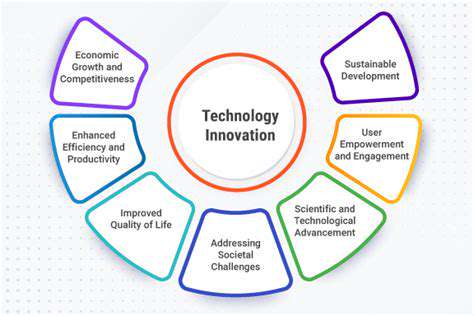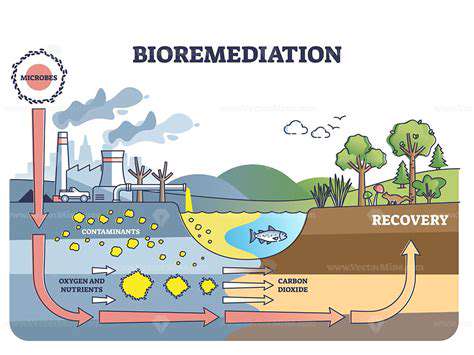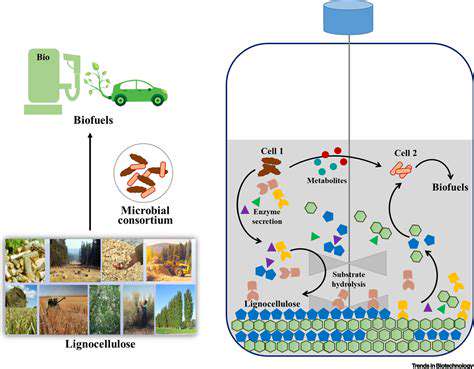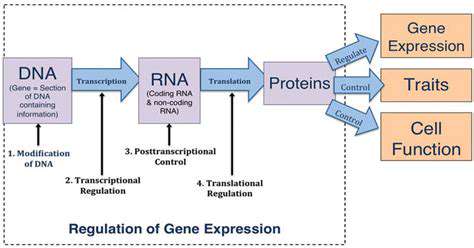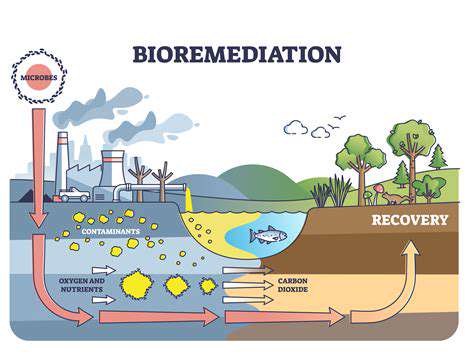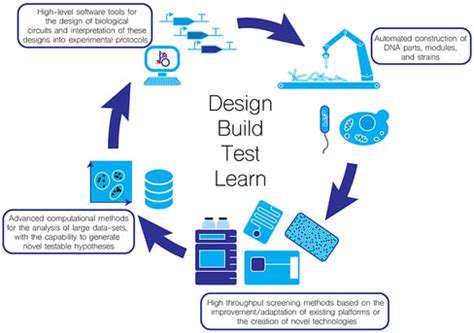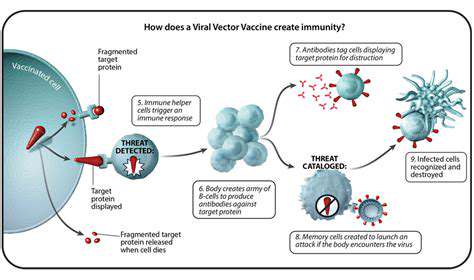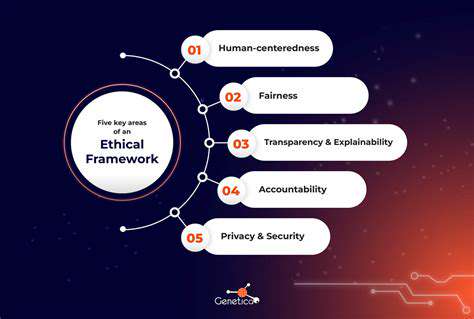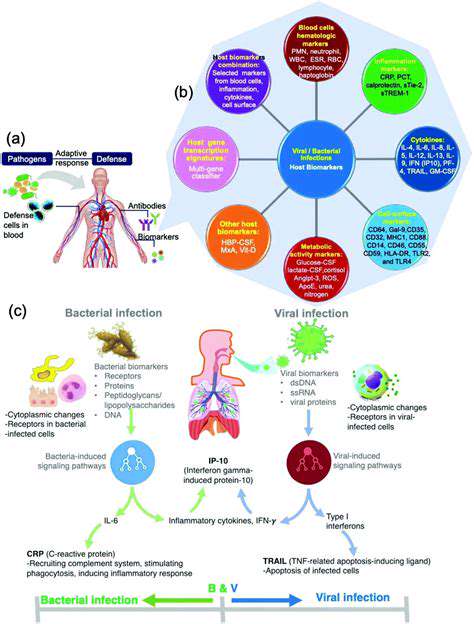Safety Considerations and Challenges
Ethical Considerations in CRISPR Clinical Trials
CRISPR gene editing technology, while promising, raises significant ethical concerns. One crucial aspect is ensuring equitable access to these potentially life-altering therapies. Strict protocols and oversight are essential to prevent the misuse of CRISPR for non-therapeutic purposes or the exacerbation of existing health disparities. Careful consideration must be given to the long-term effects of CRISPR interventions, as unforeseen consequences could emerge over time. This necessitates robust follow-up studies and meticulous monitoring of patients to detect and address any unexpected health issues.
Another important ethical concern revolves around informed consent. Patients undergoing CRISPR therapies must be fully informed about the potential benefits, risks, and limitations of the procedure. The complexity of the technology and the potential for unintended consequences demand transparency and clear communication. The decision-making process should prioritize patient autonomy and empower individuals to make informed choices about their health, especially when dealing with conditions that affect future generations.
Potential Off-Target Effects and Immunogenicity
CRISPR systems, while precise, are not infallible. The possibility of unintended genetic modifications at sites other than the intended target, known as off-target effects, poses a significant risk. These off-target effects could lead to unforeseen health complications and require meticulous monitoring and rigorous testing to minimize this risk. The development of robust detection methods for these off-target effects is critical for the safe and effective application of CRISPR in clinical settings.
Another challenge lies in the potential for immune responses to the CRISPR components. The introduction of foreign genetic material or proteins could trigger an immune reaction, potentially hindering the therapeutic efficacy of the treatment. Strategies to mitigate these immune responses, such as modifying the CRISPR components or using immune-suppressive therapies, need to be developed and tested extensively before widespread clinical use.
Delivery Methods and Targeting Specificity
Efficient and safe delivery of CRISPR components to the target cells is crucial for successful gene editing. Different delivery methods, such as viral vectors or non-viral nanoparticles, have varying degrees of efficacy and safety profiles. The choice of delivery method will depend on the specific application and the target tissue. Further research is needed to develop more precise and reliable methods to ensure effective and targeted delivery of CRISPR components.
Ensuring precise targeting of the CRISPR system to the desired genetic locus is another major challenge. Strategies to improve the specificity of the guide RNA and the Cas enzyme are essential to minimize off-target effects. Ongoing research focuses on developing more sophisticated targeting mechanisms and optimizing the CRISPR system to achieve greater precision in gene editing.
Long-Term Safety Monitoring and Follow-up Studies
The long-term effects of CRISPR gene editing therapies are not fully understood. Longitudinal studies are essential to evaluate the safety and efficacy of these therapies over extended periods. These studies will track the long-term health outcomes of patients undergoing CRISPR interventions, identifying any potential late-onset adverse effects. Careful monitoring of patients is crucial for ensuring the safety and effectiveness of CRISPR therapies.
Regulatory Hurdles and Clinical Trial Design
Navigating the regulatory landscape for CRISPR clinical trials is complex. Establishing clear guidelines and regulatory frameworks for the development and approval of CRISPR therapies is essential. This includes ensuring that clinical trials are designed to adequately address safety concerns, assess efficacy, and collect the necessary data for regulatory approval. Clear regulatory pathways will facilitate the responsible advancement of CRISPR technology.
Ethical Implications and Future Directions
Ethical Considerations in CRISPR Therapy
The burgeoning field of CRISPR gene editing holds immense promise for treating genetic diseases, but it also raises significant ethical concerns. One primary concern revolves around the potential for unintended consequences, both on a cellular and societal level. Precise targeting is crucial, yet off-target effects can lead to unforeseen health problems. Careful consideration must be given to the long-term implications of altering the human genome, especially in germline cells, which could have generational impacts. This necessitates a rigorous ethical framework for clinical trials, ensuring that these trials are conducted responsibly and with the utmost care for patient safety.
Beyond the technical aspects, societal implications must be addressed. Access to CRISPR therapies raises questions about equity and fairness. If these technologies become available, will they be accessible to all, or will they exacerbate existing health disparities? Equitable access is crucial to ensure that the benefits of CRISPR are not limited to the privileged few. A transparent and inclusive discussion about the societal implications of CRISPR is essential to navigate these complex issues.
Potential for Germline Editing
The possibility of germline editing—altering genes in reproductive cells—presents a unique set of ethical challenges. These alterations would be heritable, impacting future generations, and the long-term consequences of such interventions are still largely unknown. The potential for unintended and unforeseen consequences is especially profound in this context, making it critical that any germline editing is approached with extreme caution.
Significant societal debate is necessary before any widespread germline editing is considered. Public discourse must involve experts from various disciplines, including scientists, ethicists, policymakers, and the public. The potential benefits must be weighed against the potential risks, and a robust regulatory framework must be developed to govern this powerful technology.
CRISPR's Role in Cancer Treatment
CRISPR's application in cancer treatment holds significant promise, as it offers a way to target and potentially eradicate cancerous cells. However, the ethical considerations are multifaceted. Precise targeting of cancerous cells is paramount, but the potential for collateral damage to healthy cells must be carefully evaluated. The development of robust, safe, and effective protocols is crucial for responsible clinical trials.
Regulatory Landscape and Oversight
Establishing a robust regulatory framework is critical for guiding the development and use of CRISPR technology. Clear guidelines and regulations are needed to ensure safety, efficacy, and equitable access. These guidelines should cover all aspects of CRISPR research, from initial laboratory studies to eventual clinical trials.
International collaboration is essential in establishing ethical guidelines and standards. Different countries have varying perspectives and priorities, and a globally harmonized approach is necessary to prevent a patchwork of regulations that hinder progress and create inconsistencies.
Patient Consent and Informed Decision-Making
Patient consent and informed decision-making are fundamental ethical principles in any medical intervention, and CRISPR technology is no exception. Patients must fully understand the potential benefits, risks, and limitations of CRISPR therapy before making any decisions. This includes the potential for long-term side effects and the possibility of unintended consequences.
Clinicians have a responsibility to provide comprehensive information in a clear and understandable manner. This includes discussing alternative treatment options and emphasizing the importance of ongoing monitoring and follow-up care.
Long-Term Monitoring and Follow-up
Long-term monitoring and follow-up are essential for evaluating the safety and efficacy of CRISPR therapies. This requires comprehensive data collection and analysis to identify any potential long-term side effects or unexpected consequences. The need for long-term studies is paramount to ensure that these powerful technologies are used responsibly and safely.
Data sharing and collaboration among researchers and clinicians are vital to ensure the thorough monitoring and evaluation of CRISPR therapies. This will allow for a more comprehensive understanding of the long-term effects of these interventions and will contribute to the advancement of safe and effective clinical applications.

